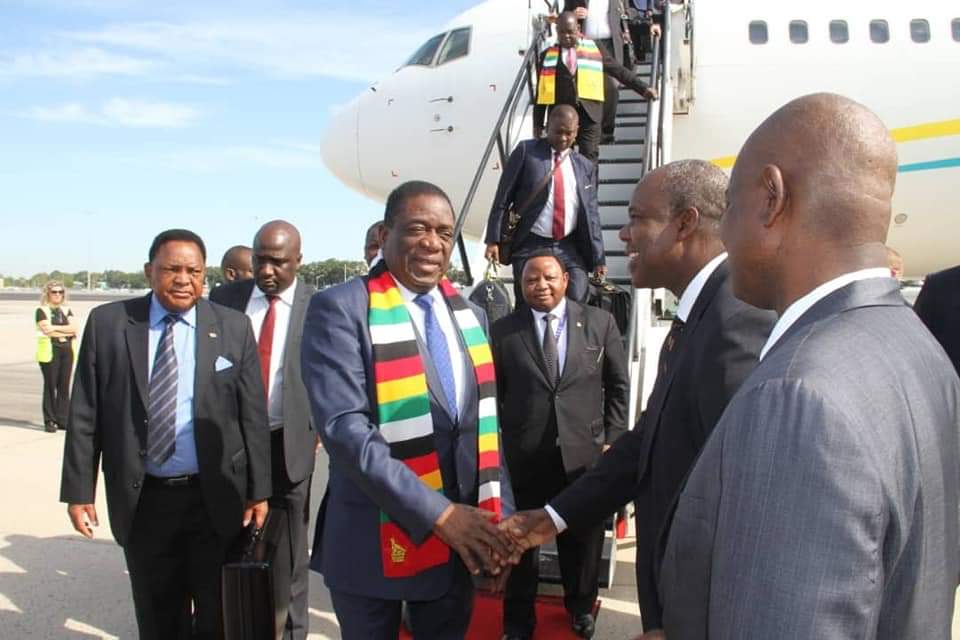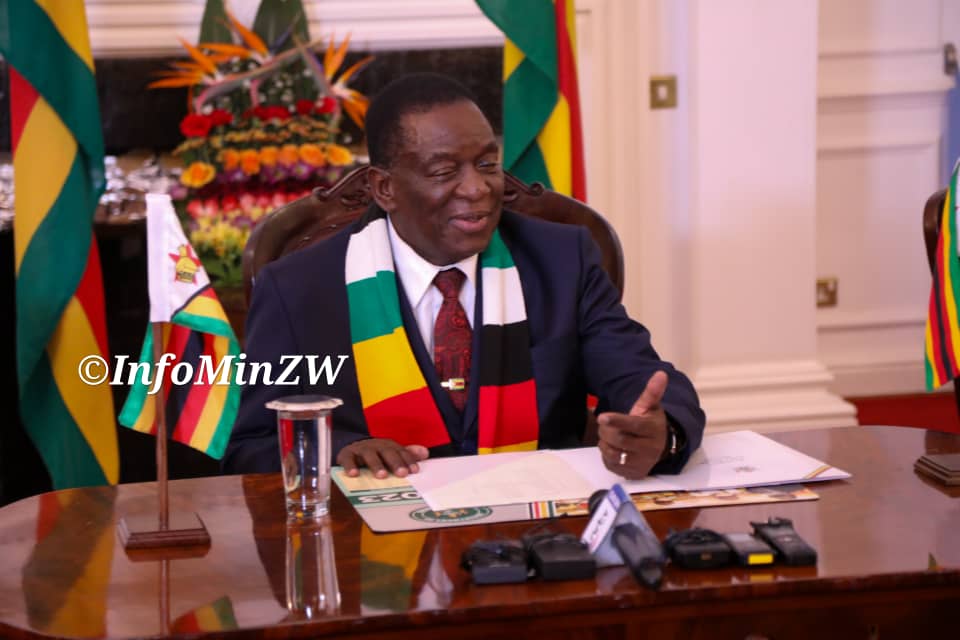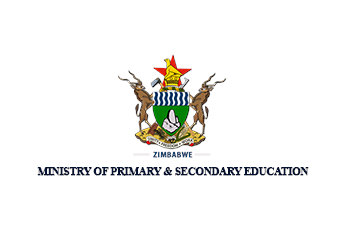President Mnangagwa arrives in New York
Share

New York(New Ziana) – President Emmerson Mnangagwa arrived in New York on Saturday for the United Nations General Assembly where he is expected to advance his government’s engagement and re-engagement agenda which has seen Zimbabwe being re-embraced by much of the international community after almost two decades of isolation.
Zimbabwe had been ostracised by a significant part of the world following its tiff with former colonial power Britain over land reforms which it carried out involving the compulsory acquisition of excess white-owned farmland to resettle landless blacks.
London mobilised the European Union, the United States and all its western allies to impose sanctions on Zimbabwe, and isolate the country diplomatically, among other penalties, in retaliation for the land reforms.
The economic blockade, which included trade restrictions and barring the country from accessing loans from the International Monetary Fund (IMF), the World Bank and other international financial institutions, has been particularly brutal to the southern African country.
The country estimates to have lost nearly $100 billion in economic damage over the two decades, leading to high unemployment and emigration of Zimbabweans to neighbouring countries and beyond in search of livelihoods.
It is against this background that President Mnangagwa, upon assuming office in 2017, immediately sought to engage and re-engage friend and foe alike to open a new page in relations.
Overall, the country has since been re-embraced by the greater part of the international community, though the West appears to be of two minds, or rather double faced.
Although this has not yet unlocked doors to renewed IMF and World Bank funding, many other financing avenues – which had similarly been shut to the country – are slowly re-opening.
Particularly significant is the foreign investor interest that the new administration’s engagement and re-engagement policy, which has been underpinned by deep economic reforms, has managed to entice to the country.
A new US$4 billion platinum project by Cypriot-based Karo resources has come on stream already, and Russians have rekindled their interest in another US$4 billion platinum project in Darwendale following President Mnangagwa’s visit to Moscow in January.
Several other foreign investment deals, ranging from road and rail rehabilitation, power development to agriculture and pharmaceuticals have been struck in the last two years, all riding on the back of the government’s reformist agenda, anchored by the engagement and re-engagement policy.
This week alone, the country sealed investment deals worth US$350 million in various sectors with Belarus, and this follows President Mnangagwa’s visit to Minsk early this year.
Belarus is a typical example of the success of the new administration’s engagement and re-engagement policy.
Until President Mnangagwa’s visit to the ex-Soviet country, not many Zimbabweans knew about it, nor could point its location on a map, let alone expect that Zimbabwe could draw US$350 million in foreign investment from it.
It is entirely new frontier for the country, born out of engagement and re-engagement.
In New York – the epicentre of world capital – President Mnangagwa is expected to meet, on the sidelines of the UN General Assembly, some of the leaders of global capital to market Zimbabwe’s investment opportunities, and woo them to the country.
Last year, he met several of them when he attended the UN General Assembly, and made presentations on Zimbabwe’s reforms as well as investment opportunities.
He is also expected to take the opportunity to draw the world’s attention to the debilitating effects that Western sanctions have had, and are still having on the economy.
Despite the fact the new administration has addressed all the concerns such as free and fair elections, and repeal of laws seen as undermining democracy which the West cited in imposing the sanctions, the penalties have been firmly kept in place.
This has not only surprised and annoyed Zimbabwe, but the sub-region and continent of Africa as a whole.
At its summit last month, the Southern Africa Development Community (SADC) strongly condemned the refusal by the West to lift the embargo, and agreed to widen Zimbabwe’s anti-sanctions fight to the whole region, and also to lobby the African Union to do likewise.
Egypt, the current chair of the African Union, is expected to raise Zimbabwe’s plea for sanctions relief at the UN General Assembly, as is Tanzania, the SADC chair.
All this a product of the government’s engagement and re-engagement policy.
New Ziana









